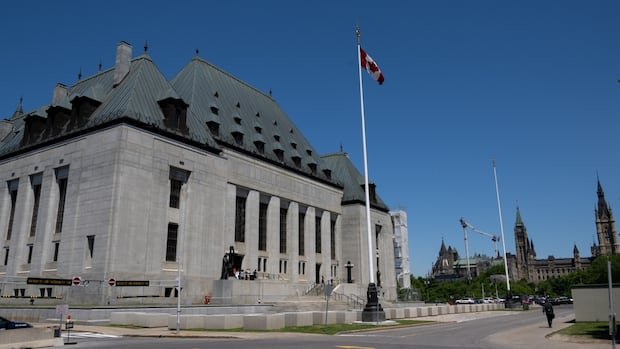The Canadian federal government has urged the Supreme Court of Canada to establish boundaries on how provincial governments can supersede the Charter of Rights and Freedoms. This request was presented through a factum, a legal document outlining the facts and legal arguments of a case, filed at the court on Wednesday in relation to Quebec’s Bill 21, also known as the secularism law.
Quebec has utilized the notwithstanding clause of the Charter in its legislation, allowing provinces to protect laws from constitutional challenges. However, the federal government has contended that the repetitive use of this clause could effectively alter the Constitution indirectly. They have advocated for the court to be able to determine if this practice might lead to the “irreparable impairment” of Canadians’ rights.
Ontario and Alberta have voiced their support for the notwithstanding clause, asserting its significance in the Canadian Constitution and emphasizing that the top court should not undermine it. Both provinces defended Quebec’s preemptive use of the notwithstanding clause when enacting the 2019 secularism law, which prohibits public sector figures like teachers and judges from displaying religious symbols at work.
Ontario’s attorney general expressed disagreement with Quebec’s requirement for individuals to remove religious symbols to access public services but maintained that it is a decision for Quebec’s legislature and citizens to make. The provinces argued that Section 33 of the Charter, the notwithstanding clause, was pivotal during the negotiation of the 1982 Constitution and upholds the autonomy of provincial legislatures by allowing them to override certain Charter rights.
The Supreme Court has agreed to hear a legal challenge against Bill 21 by groups opposing the law, although a hearing date has not been set. Some parties are urging the court to limit the preemptive use of the notwithstanding clause or to allow courts to assess the constitutionality of a law upheld under this clause.
Alberta emphasized the importance of the notwithstanding clause as a hard-earned compromise during the Charter negotiations. The province contended that court declarations on laws using the notwithstanding clause would essentially transform the court into a political interest group.
Several interveners, including various provinces, are involved in the Supreme Court case. Since the enactment of Bill 21, other provinces have increasingly resorted to Section 33. For instance, Saskatchewan invoked the clause to mandate parental consent for students under 16 to use preferred names or pronouns at school in 2023. Quebec has also employed Section 33 for other legislative purposes, such as revamping the province’s language law.
In a recent ruling, the Saskatchewan Court of Appeal affirmed that courts can issue declarations on rights violations in laws invoking the notwithstanding clause. Prime Minister Mark Carney opposes the preemptive use of Section 33, while Bloc Québécois Leader Yves-François Blanchet accused Carney of leveraging the clause to criticize Quebec’s secularism stance. Blanchet urged Carney to openly express any opposition to Quebec’s fundamental values and language policies.

